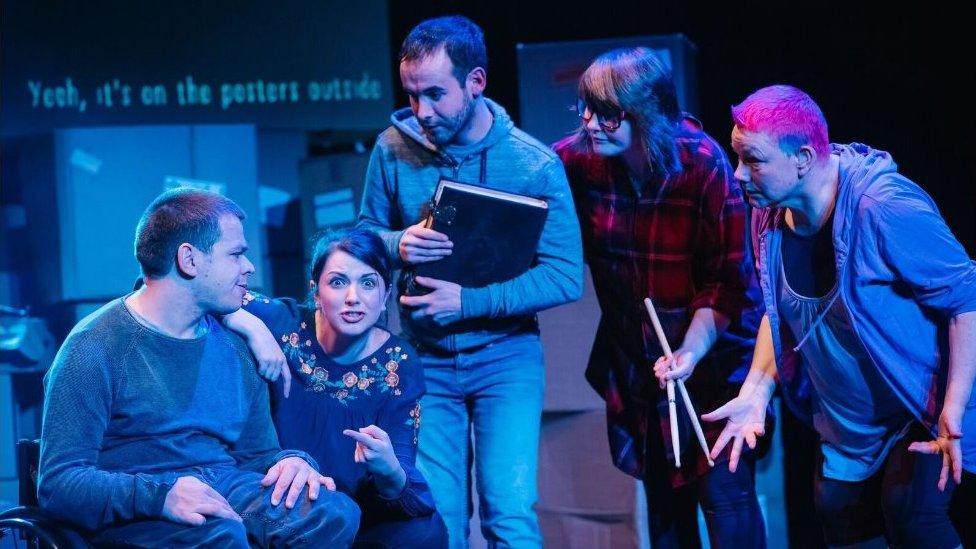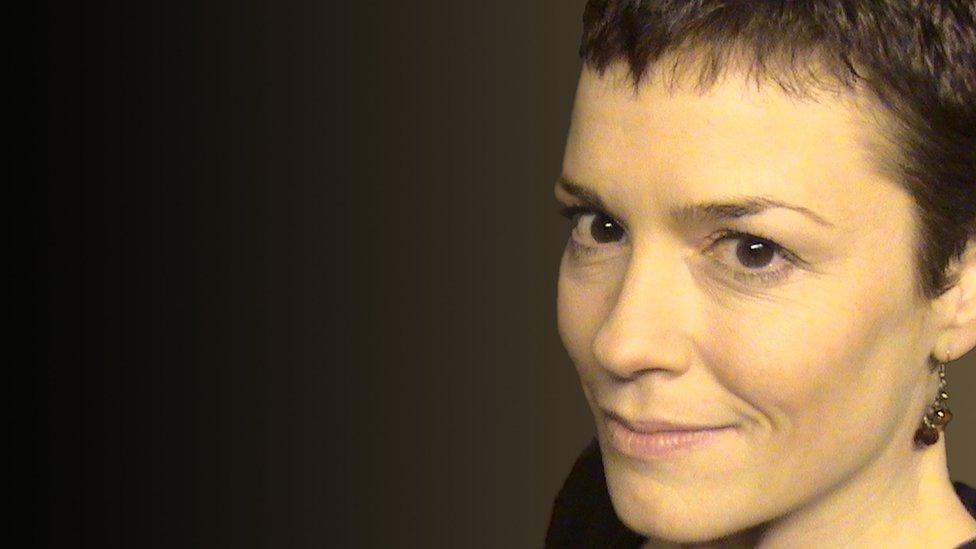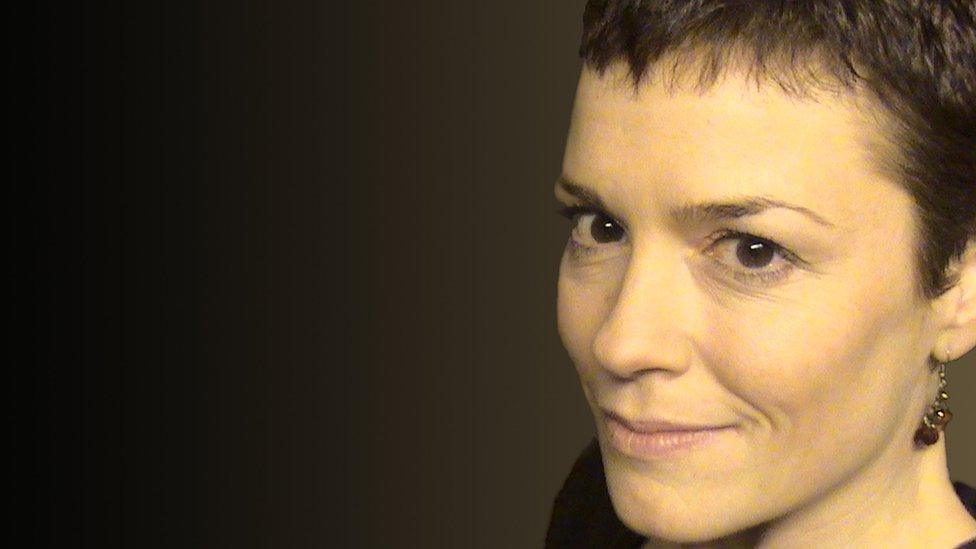Creative Scotland: A strange sense of Deja Vu
- Published

Birds of Paradise had its funding reinstated after initially being refused
"Creative Scotland's board has promised to make serious changes to the way it operates after admitting it has made mistakes."
Sound familiar? Not the words of the board following the resignation of CEO Janet Archer, but a statement from the board of December 2012, following the resignation of the previous CEO, Andrew Dixon.
There's a strange sense of Deja Vu about this. Back then, the row began about a change to funding for 49 organisations, many of them well established, which in the words of cultural commentator Joyce Macmillan took them, with little warning, from "modest security" to "complete insecurity".
The fallout was instant and angry. Artists demanding a shake up of the entire funding system.
Added headache
Janet Archer arrived the following summer. A respected member of the dance community, she'd applied for grants for projects herself and knew the challenges from both sides of the divide.
She promised a clear and transparent approach, better communication and more consultation.
The one thing she couldn't fix was the mismatch between the volume of applications and the amount of funds available, which was more than double at that point. The predicted decline in Lottery funds was an added headache.

Janet Archer had been chief executive for the past five years
Part of her role, she said, was to encourage artists and companies to seek other sources of funding - no easy task with local government resources squeezed but she was successful in persuading the Scottish government to plug that shortfall in Lottery funding with £20m of additional funding.
Part of the briefing about the controversial decision to withdraw regular funding from 21 organisations in January was that they would have access to other streams of money, including a new touring theatre fund. But that was news to the companies, who pointed out it hadn't been set up yet.
Creative Scotland backtracked on five of the companies and reinstated their funding. Ms Archer, like her predecessor, appeared before the parliament's culture committee and said she was sorry, the funding system was being reviewed.
But it was too late. The committee's report described the decision making process as below the standard expected of a public body and said it had damaged the confidence of the sector.
As CEO, Ms Archer was the public face of Creative Scotland, and it wasn't a question of "if" but "when" she'd resign.
Funding review
If we're counting the cost of all this, a well intentioned individual has lost her job but two of the organisations affected in the funding cuts - NVA and Culture Republic - have closed down and many more organisations are still unsure about their future prospects.
Speaking on Radio Scotland, Angie Dight, director of Mischief Le Bas, the Glasgow based theatre company which lost its regular funding in January, said she believed bureaucracy and policies are still leading the discussion, rather than art and artists.
It's that mindset which needs to change but it will be a slow process.
A review of funding is under way, but won't be concluded until April 2019.
There is a chance to put things right and the same things are required;
simpler systems
better communication
clear and open decision making
and a focus on creativity, ahead of business.
There's no hurry to appoint a new CEO, but when they do, let's hope it's third time lucky for Creative Scotland.
What's the chat on social media?
Allow X content?
This article contains content provided by X. We ask for your permission before anything is loaded, as they may be using cookies and other technologies. You may want to read X’s cookie policy, external and privacy policy, external before accepting. To view this content choose ‘accept and continue’.

Allow X content?
This article contains content provided by X. We ask for your permission before anything is loaded, as they may be using cookies and other technologies. You may want to read X’s cookie policy, external and privacy policy, external before accepting. To view this content choose ‘accept and continue’.

- Published17 July 2018
